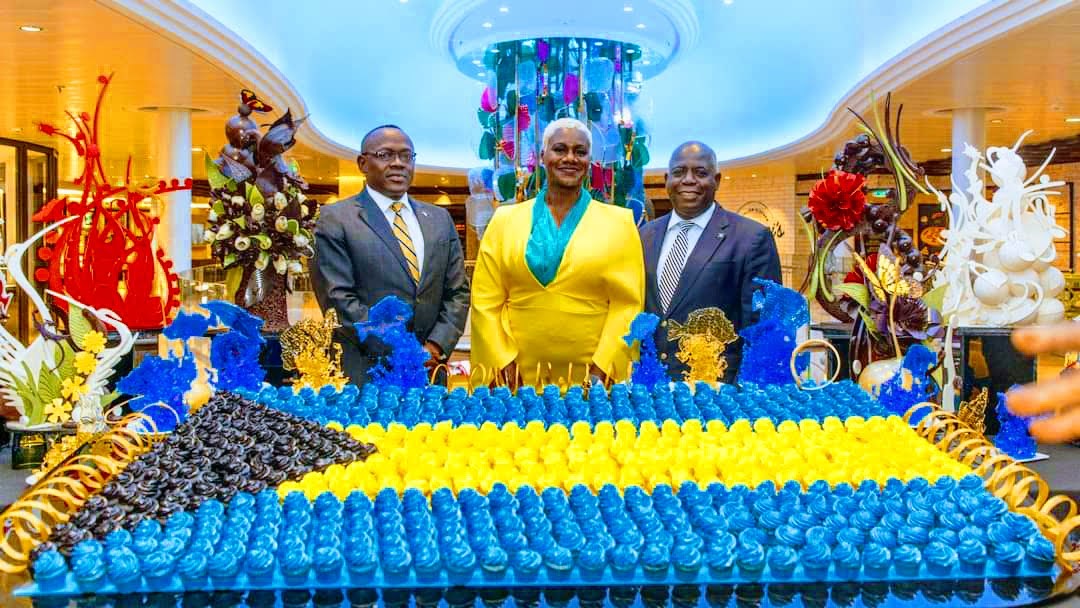We were lucky to catch up with Erin Brown recently and have shared our conversation below.
Alright, Erin thanks for taking the time to share your stories and insights with us today. Let’s kick things off with your mission – what is it and what’s the story behind why it’s your mission?
With over 8.1 billion people in the world, more than 1.3 billion—approximately 16% of the global population—are persons with disabilities. In Latin America and the Caribbean, the World Bank (2020) reported over 85 million persons with disabilities, representing 14.7% of the regional population. According to UNESCO (2024), there are more than 1 million persons with disabilities living in the Caribbean today.
Now imagine, among the seven hundred islands and cays of The Commonwealth of The Bahamas, a hidden gem whose mission challenges stereotypes, reshapes how disability inclusion is implemented, and amplifies the authentic voices and lived experiences of disabled people. That gem is Erin Brown Connects,( EBC) Disability Advocacy and Inclusion Management.
Founded by Erin “Bionic” Brown, EBC personifies what is possible when resilience meets purpose. The organization’s mission is to create accessible, inclusive, and equitable environments for people with disabilities—locally, regionally, and globally. EBC focuses on raising awareness of disability rights, advancing inclusive policies, and providing consultancy services that help businesses, governments, and organizations build cultures where disabled people can thrive.
EBC’s work is rooted in its mission to promote disability inclusion by fostering a culture of accessibility in all aspects of society. Through advocacy, training, strategic consulting, and awareness programs, the organization breaks down physical, social, and cultural barriers that prevent individuals with disabilities from fully participating in economic, social, competitive, and cultural life.
She has changed the landscape of how disabled women leaders, business owners, adaptive athletes, and global ambassadors are represented and valued. Her journey began long before her stage four osteosarcoma (bone cancer) diagnosis and subsequent above-the-knee amputation which continues to drive her unique approach and representation globally. That life-altering moment only strengthened her resolve to approach advocacy with authenticity, determination, and vision.
Those who meet Erin often describe her high energy, articulate voice, and passionate call to action as invigorating and inspiring. Others may find her pace demanding, even overwhelming—but both perspectives reflect the truth of what it means to be a trailblazer. Erin’s journey is one of persistence, resilience, and fearless leadership, marked by both triumphs and challenges, and always propelled by the purpose of advancing disability inclusion.
This mission is not just Erin’s career—it is her life’s calling, and it continues to guide the impact of Erin Brown Connects across The Bahamas, the wider Caribbean, and beyond.
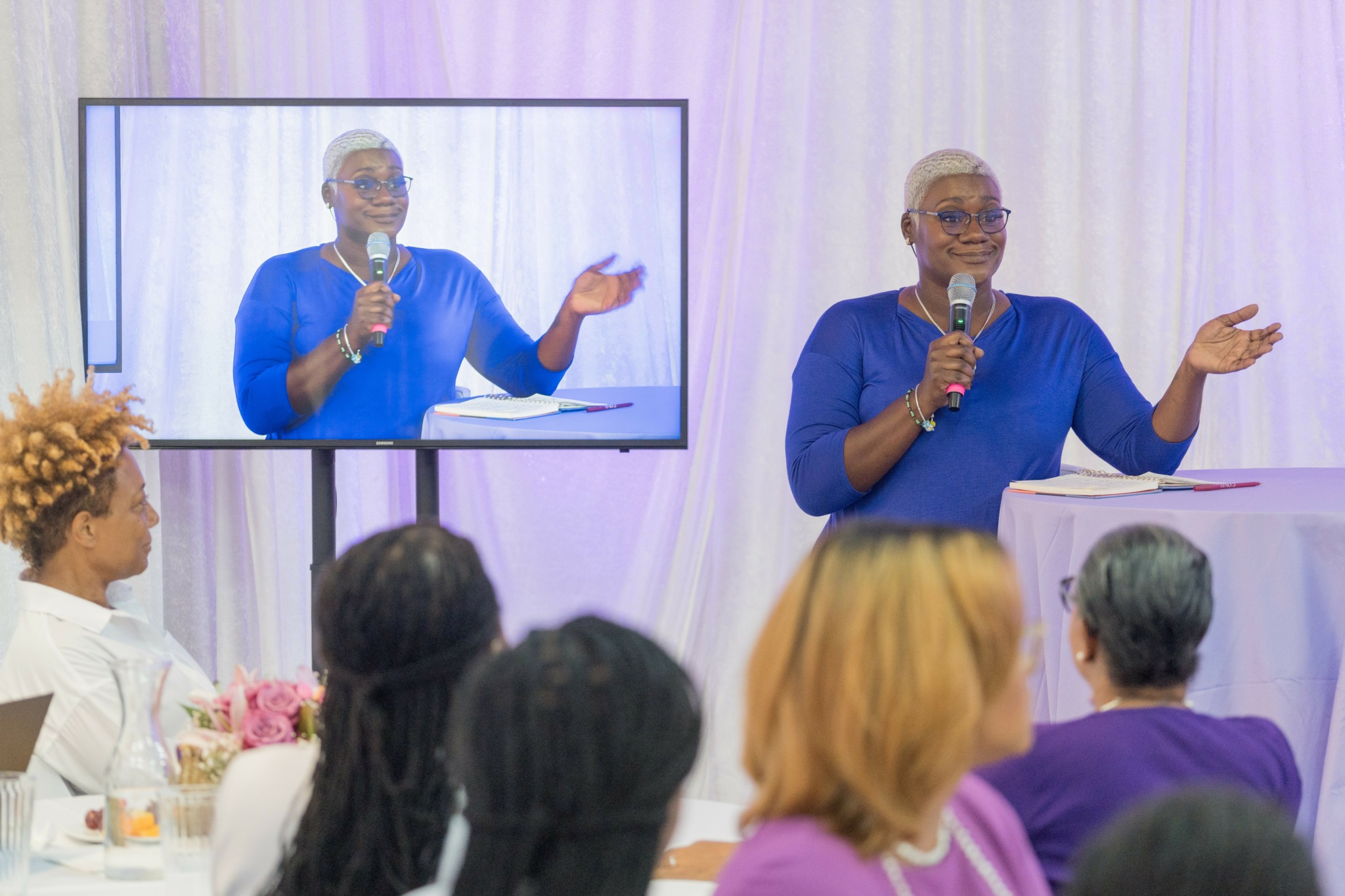
For folks who may not have read about you before, can you please tell our readers about yourself, how you got into your industry / business / discipline / craft etc, what type of products/services/creative works you provide, what problems you solve for your clients and/or what you think sets you apart from others. What are you most proud of and what are the main things you want potential clients/followers/fans to know about you/your brand/your work/ etc.
Erin “Bionic” Brown—a cancer survivor, above-the-knee amputee, para-athlete, disability consultant, and human rights advocate with over twenty years of experience.. My journey into this work was not traditional. I did not step into the disability field through academia or professional interest alone—I was thrust into it by life itself.
When my leg was removed due to stage four osteosarcoma, I came face-to-face with the social realities of living with a disability. The biggest challenge was not my amputation—it was the barriers around me: schools that weren’t accessible, workplaces that didn’t know how to support employees with disabilities, healthcare systems that overlooked inclusion, and a society that underestimated my value.
I quickly realized that if these barriers existed for me, they existed for countless others even before me. That’s what pushed me to combine my lived experience with my professional background in advocacy and community development to curate the inclusive learning space, now known as “Erin Brown Connects”.
We work with civil society organizations to implement real, tangible disability inclusion strategies. We aim to create inclusive spaces where individuals with disabilities are seen, heard, and value, we provide:
Disability Inclusion Consultancy & Strategy Development – We help governments, corporations, and non-profits create strategies that embed accessibility and inclusion into their core operations.
Disability Fire Chats & Employment Resource Training Programs – From executive boardrooms to frontline staff, we equip teams with tools to communicate, engage, and lead inclusively.
Policy & Advocacy Services – We support governments and institutions in creating policies that are not just compliant with laws but transformative for people with disabilities.
Community Empowerment Initiatives – We develop workshops, programs, and partnerships that directly empower youth, women, and leaders with disabilities.
One of the highlights in my professional journey ; becoming a Board Member of the Caribbean Disability Network (CDN) is a regional alliance committed to advancing the rights, dignity, and inclusion of persons with disabilities across the Caribbean. CDN works to dismantle systemic barriers, expand access to disability data, support inclusive policy development, and promote employment opportunities and skills training for persons with disabilities by connecting governments, civil society, academia, the private sector, and grassroots advocates. Through public education, regional forums, and capacity-building efforts, CDN aims to foster a more equitable and stigma-free Caribbean where all individuals can participate fully in society.
Our groundbreaking inaugural 2024 Caribbean Disability Conference “Community Access, Empowerment, and Inclusion,” addressed critical areas such as Advocacy and Awareness, Education, Disability Acts and Laws, Mental Health, and Barriers to Inclusion in St. George’s, Grenada. Organized by the Authentic Caribbean Foundation (ACF) in collaboration with the Ministry of Social and Community Development, Housing and Gender Affairs, the Ministry of Education (Grenada), the Caribbean Development Bank, and Advocacy Grenada Inc, focused on empowering and advocating for people with disabilities across the Caribbean.
Distinguished leaders, included:
Professor Senator Floyd Morris, Ph.D., a pioneering advocate for disability rights and the first blind President of the Jamaican Senate, currently serving on the United Nations Committee on the Rights of Persons with Disabilities (2021-2024).Andrew Sharpe, President of ACF and a President of Caribbean Disability Network.
As the Office of the Prime Minister, United Nations Sustainable Development Goals Social Inclusion Vice Chair, the National Commission for Persons with Disabilities Commission and Accessibility Chair and my work at the University of The Bahamas (UB), Office of Disabilities and Compliance further reflect my commitment to advancing inclusion provide the landscape to present on thematic areas such as:
Inclusive Education: Highlighting the importance of access, integration, and opportunities for learners with disabilities. I explored how traditional special education frameworks often limit upward mobility and discussed how inclusive strategies can foster professional development and economic stability. Best practices included the establishment of the Mingoes Access Centre within the ODC. This centre empowered students with disabilities, their counterparts and fosters a supportive inclusive academic and social environment.
2024 conference outcomes included a comprehensive white paper with recommendations for achieving the 2030 Sustainable Development Goals (SDGs) from disability-led organizations, strengthening the Caribbean Development Bank project. 2025 CDC will be held in Barbados “Breaking Barriers: Advancing Inclusive Education for All Abilities.”, will be used to guide policymakers and stakeholders across the region in creating a more inclusive society.
This highlight underscores my dedication to transforming disability inclusion policies and practices, ensuring access, empowerment, and equity for all.
I’m proud that EBC has designed initiatives that not only influence systems but also directly change lives. focused on empowering disabled girls, women, youth, and leaders while fostering increased disability allyship. Our partnerships have expanded significantly.
Some highlights include:
Disabled Access Breast Screening (DABS): In partnership with Mammogram Access Program MAP Bahamas and The Zonta International New Providence Chapter we’ve supported over one hundred women with disabilities to access mammograms by addressing financial, transportation, and accessibility barriers, since 2023
Children’s Voices Art & Literacy Empowerment Summer Workshop: Lead by founder Carla Campbell in collaboration with Harvard University’s Cultural Agents Initiative and ODC, this program empowers at-risk and disabled youth to use art as a tool for self-expression and leadership. We have provided sensory tools and resources that ensure an inclusive and successful experience for facilitators and participants.
Financial Literacy & Skills Development Programs: We’ve championed financial literacy and entrepreneurship for disabled youth, women, and girls, giving them tools for independence and stability in partnership with The Financial Academy Mrs. Lakeisha Rolle- Deleveaux , the inguraral “BLOOM” Financial Literacy Conference at the University of The Bahamas equipped youth participants with financial, entrepreneurial, and estate planning skills, promoting social entrepreneurship and digital literacy.
COVID-19 Emergency Support: During the pandemic, we mobilized resources valued at over seven figures to provide Wi-Fi, devices, hygiene kits, and food to disabled students and families.
Mr. & Miss Wonderfully Made: The historical launch in The Bahamas celebrating disability pride and culture in partnership with Galaxy International Pageants, lead by Mrs. Sophie Wallace, Mrs. Galaxy Bahamas and its international Mrs. Galaxy queens celebrated disabled youth and adults for their contributions in The Bahamas. From community engagement to entertainment, international artists “I am Stacs” premiere “Don’t Count Me Out” on the big IMAX screen’s of Fusion Superplex in the capital of The Bahamas.
Upcoming Godmother Festival: Celebrating The Bahamas’ first Godmother in the Maritime Industry with Royal Caribbean International’s Odyssey of the Seas in November. As the first paratriathlete and black woman with a disability for my country, we focus on the global visibility of disabled women leaders our partnership with Royal Caribbean’s community goals.
These initiatives, alongside EBC’s dedication to academic support, advocacy, and inclusive development, represent the essence of what drives me: creating equitable opportunities and celebrating the talents and contributions of people with disabilities across all aspects of life.
What sets me apart is authenticity. I bring my full lived experience—my resilience as a cancer survivor, my identity as a limb difference individual, my voice as a para-athlete, and my knowledge as a inclusion consultant —to every space. This allows me to approach inclusion not as a checkbox or a trend, but as a human necessity.
We don’t just create policies—we create environments where disabled people can thrive. We ensure that disability inclusion isn’t an afterthought but a core part of every strategy, initiative, and industry. By offering holistic and comprehensive services, we ensure that inclusion is woven into the fabric of society, from education to business to sports.
I want people to know that inclusion is not a side project—it’s the foundation of sustainable growth. When organizations prioritize accessibility and inclusion, they don’t just empower disabled people—they create environments where innovation and resilience thrive for everyone.
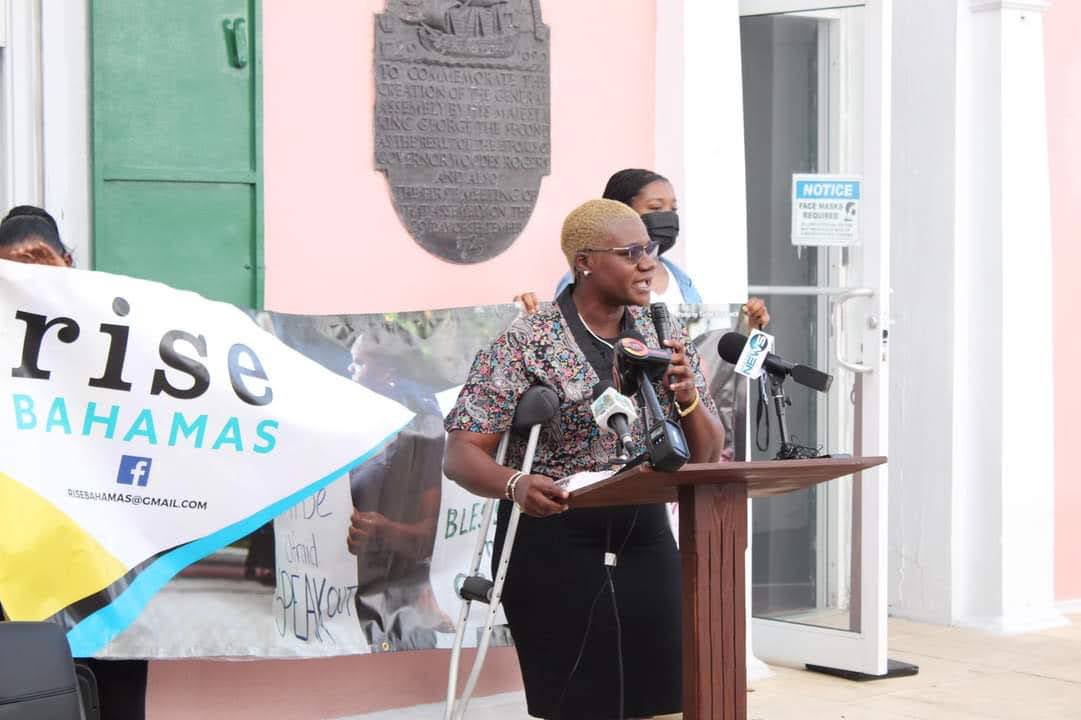
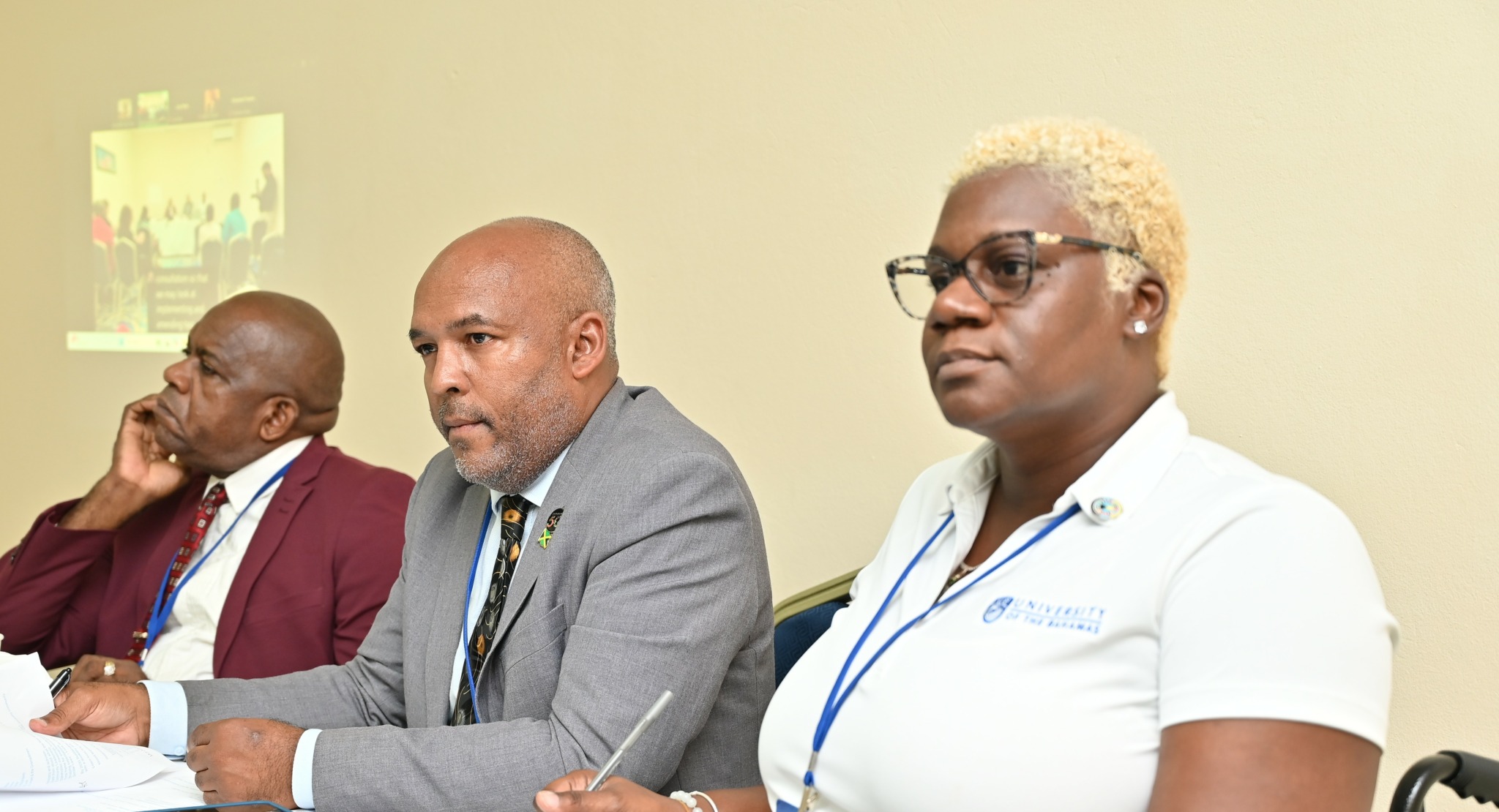
What do you think helped you build your reputation within your market?
My reputation has been built on authenticity, consistency, and results.
From the beginning, I didn’t just speak about inclusion—I lived it. People could see that my work was informed by both my personal journey but also backed by professional expertise and measurable impact. That authenticity set me apart.
Consistency was the second pillar. Whether in a grassroots workshop in Nassau, a government policy meeting in Grenada, or as a United Nations participant. I showed up with the same commitment: to ensure disabled voices are present and prioritized. Over time, this built trust, credibility, and recognition.
And finally, results. My reputation grew because EBC doesn’t just produce reports or hold meetings—we deliver tangible outcomes. From healthcare access to education, from training leaders to building community programs, the work speaks for itself.
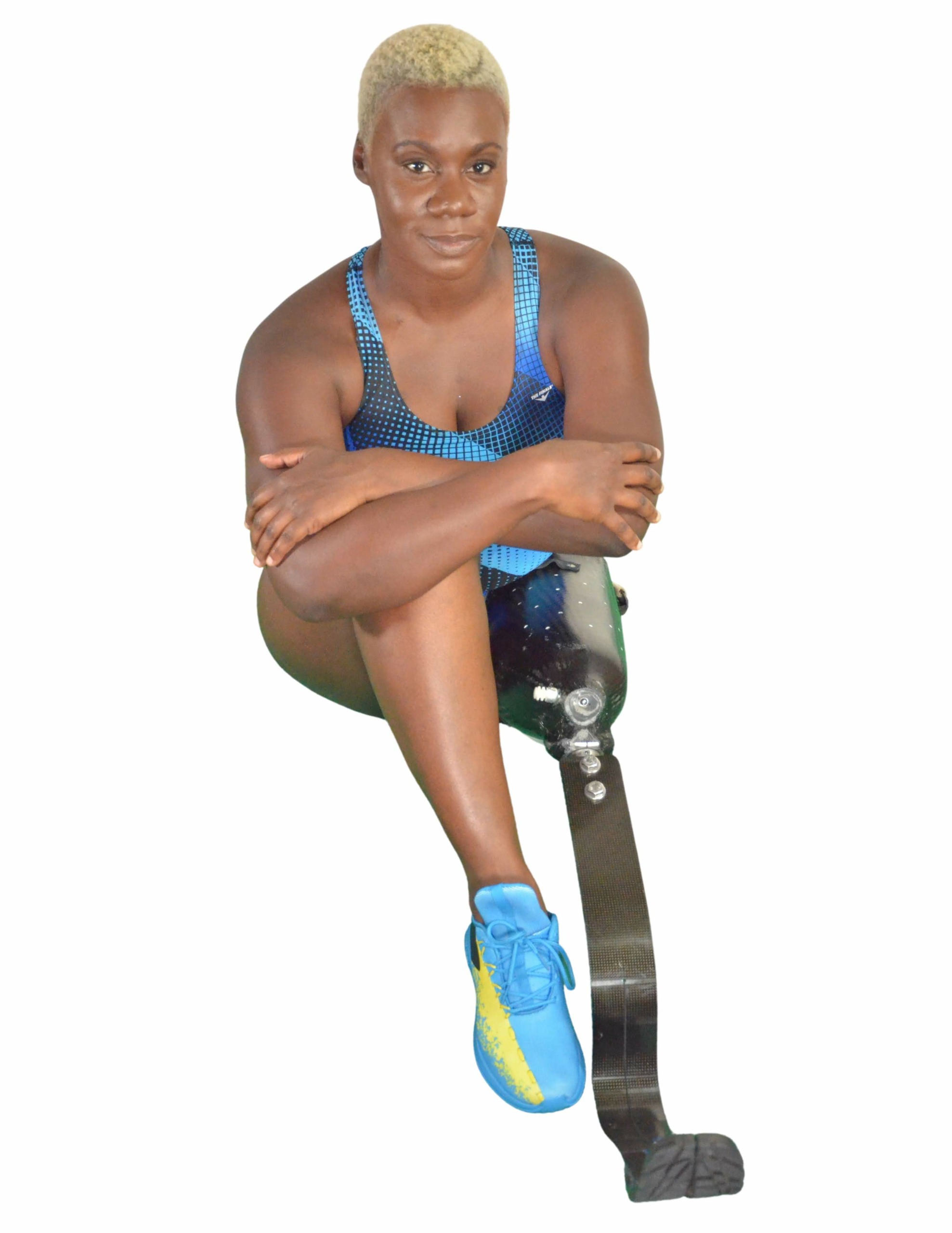
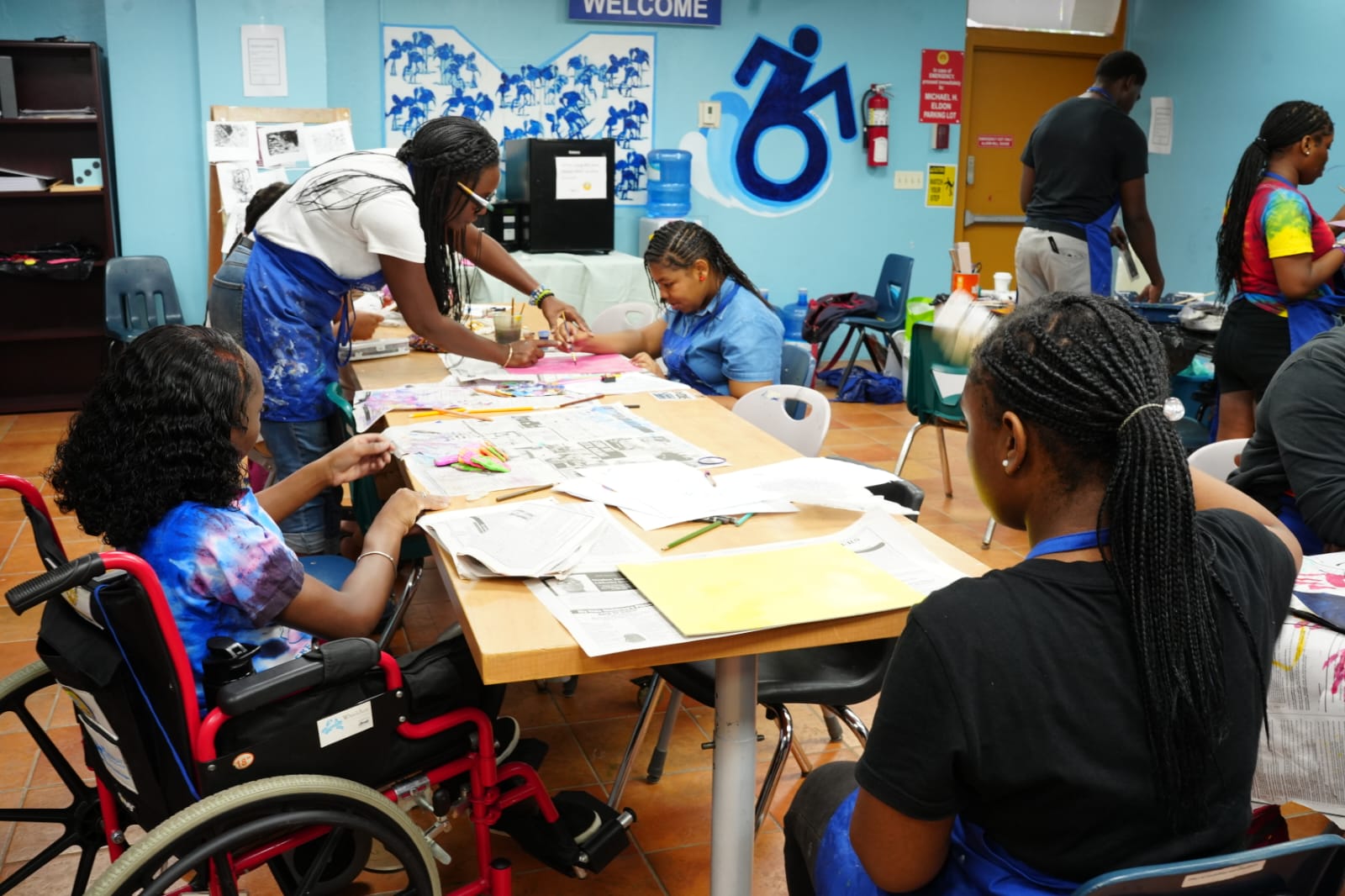
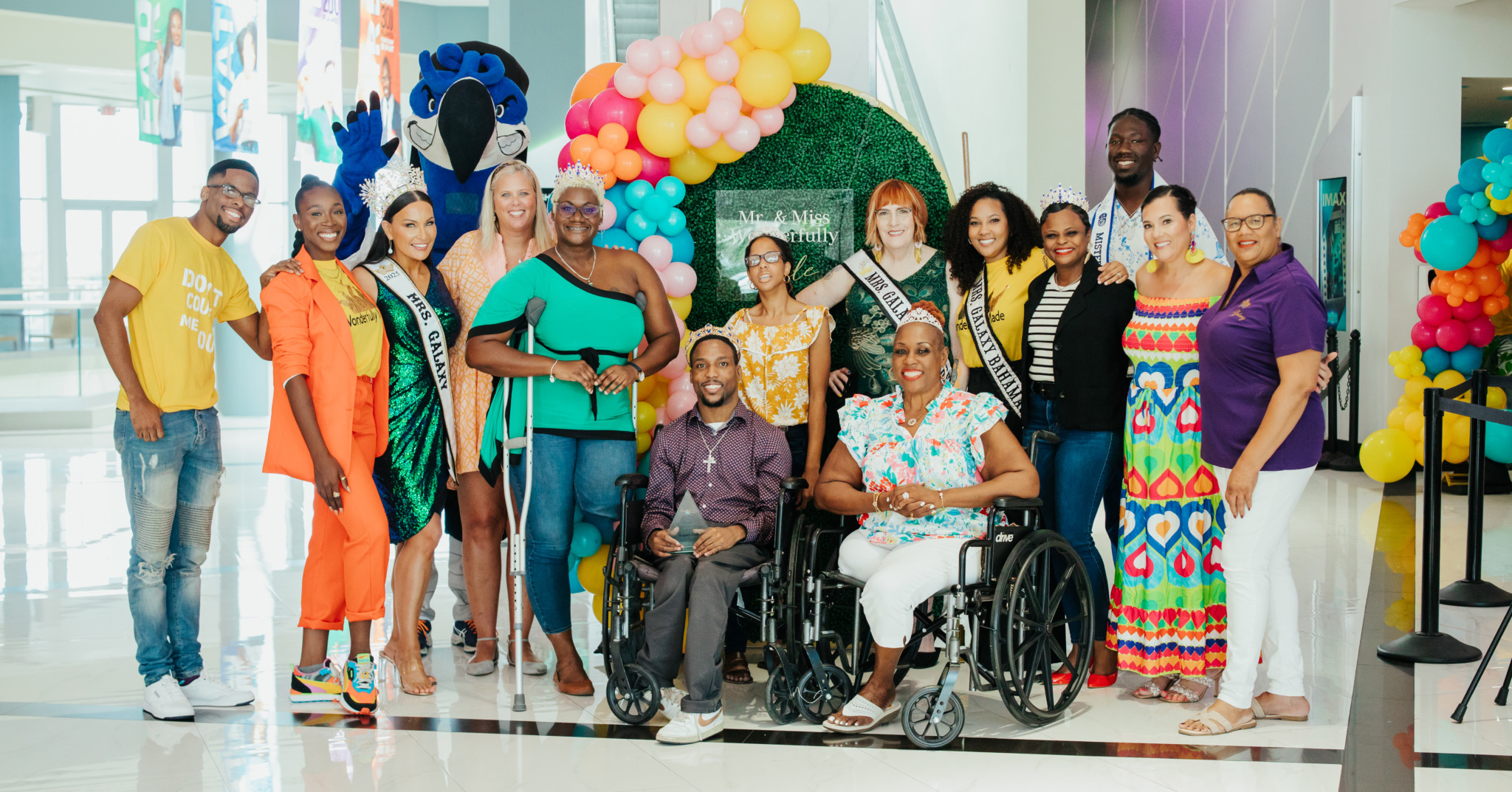
What’s a lesson you had to unlearn and what’s the backstory?
The hardest lesson I had to unlearn was believing I had to do everything myself to prove I was capable.
After my amputation, I carried a relentless drive to demonstrate that I could do anything—sometimes to the point of exhaustion. I wanted to show the world that disability wasn’t going to limit me. While that mindset fueled my resilience, it also created burnout.
The turning point came when I realized that leadership is not about doing everything alone—it’s about collaboration. True leadership means creating space for others to rise, building teams, and sharing responsibility.
Unlearning that belief was liberating. It allowed me to build networks and partnerships that amplified EBC’s reach. Today, our impact is possible not because I carried it all, but because I learned to trust others, collaborate, and lead collectively. Inclusion is not optional—it is essential. Disability is not the barrier; the barriers are physical, attitudinal, and systemic. Those barriers can be dismantled.
Now is the time for disabled professionals to step boldly into leadership, and for allies to do more than stand by—to take action. At EBC, our commitment is to create spaces where people with disabilities are not just included but empowered to thrive.
My vision is simple: a future where disability is recognized not as a deficit but as a source of strength, innovation, and diversity. Together, we can make inclusion the standard—not the exception.
Contact Info:
- Website: https://www.erinbrownconnects.com
- Instagram: @erinbrownconnects @erinbionicbrown
- Facebook: https://www.facebook.com/EBConnects
- Linkedin: https://www.linkedin.com/in/erinbronwconnects
- Youtube: https://www.youtube.com/@erinbrownconnects
- Other: Digital Contact Link https://qrco.de/ebconnects
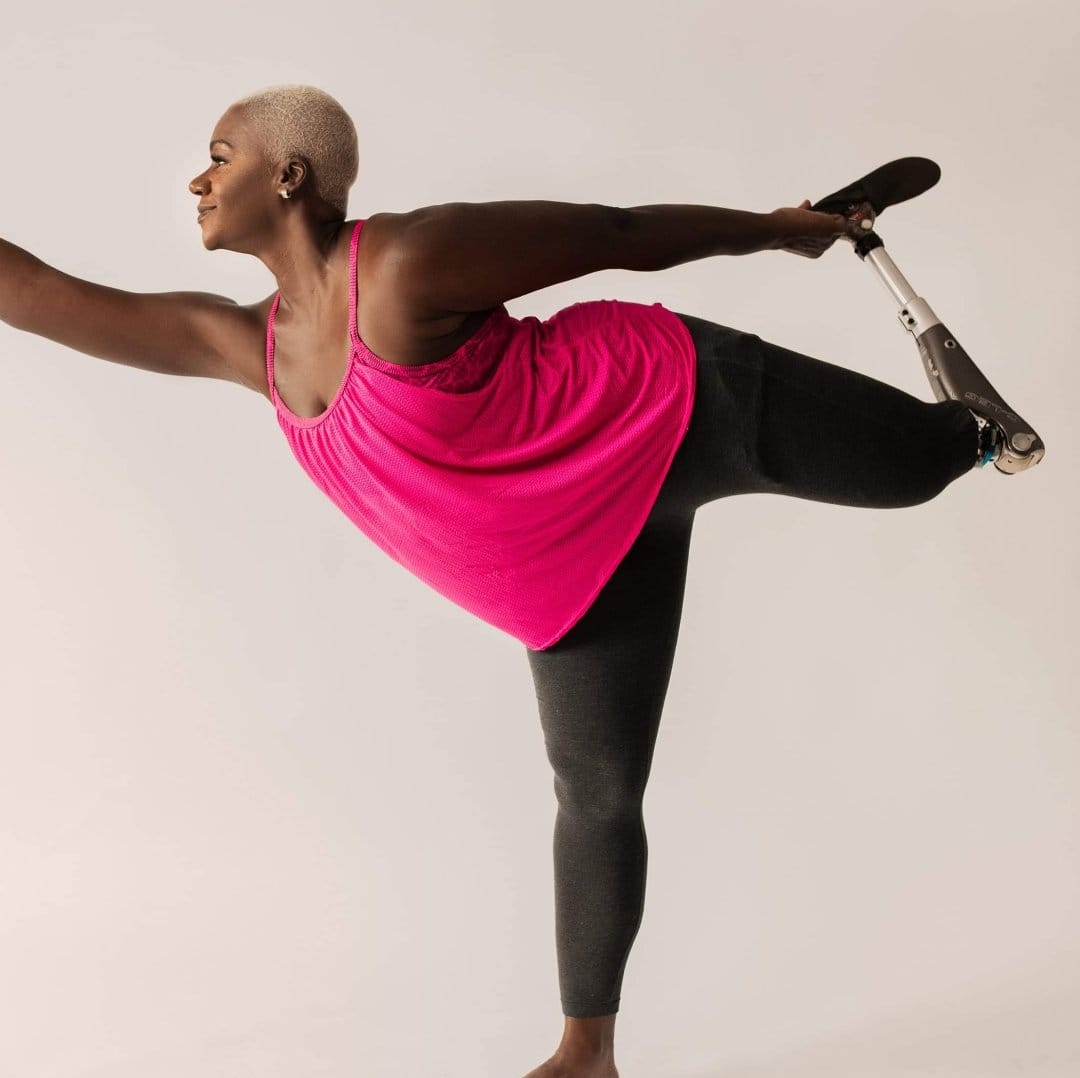

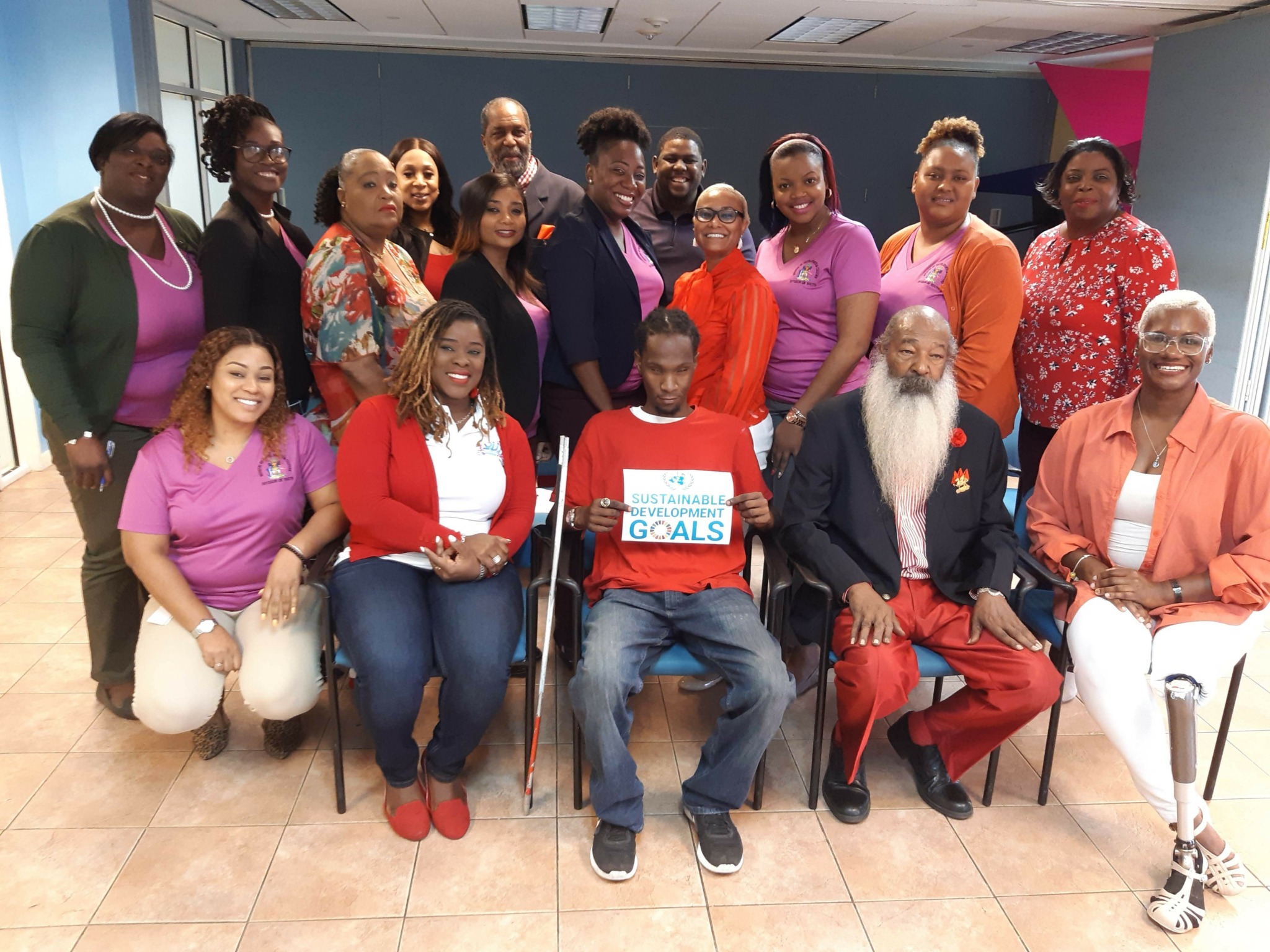
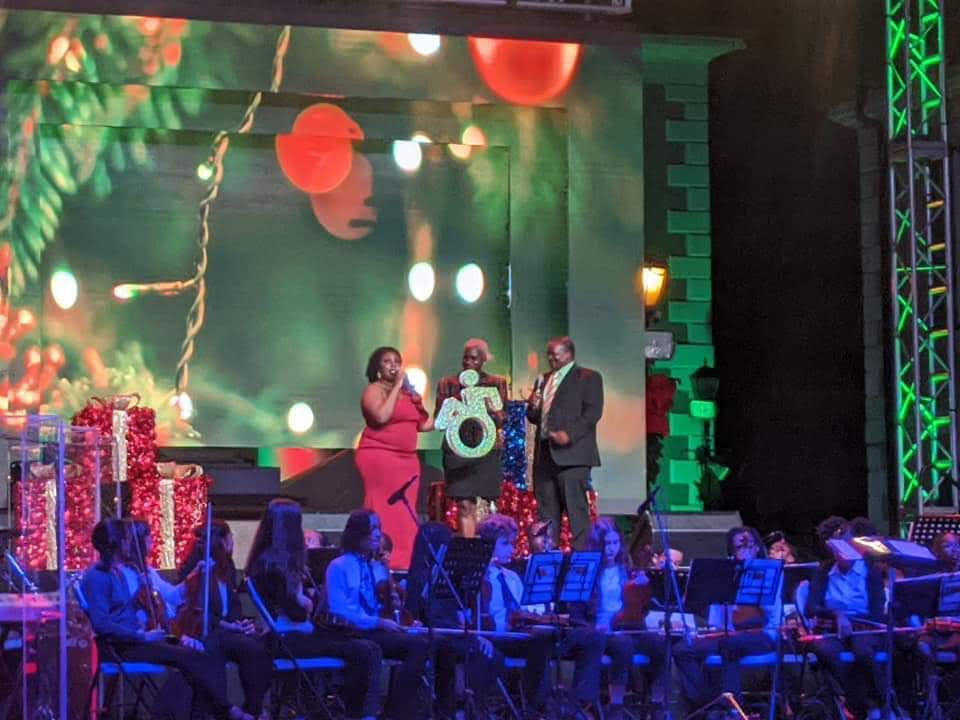
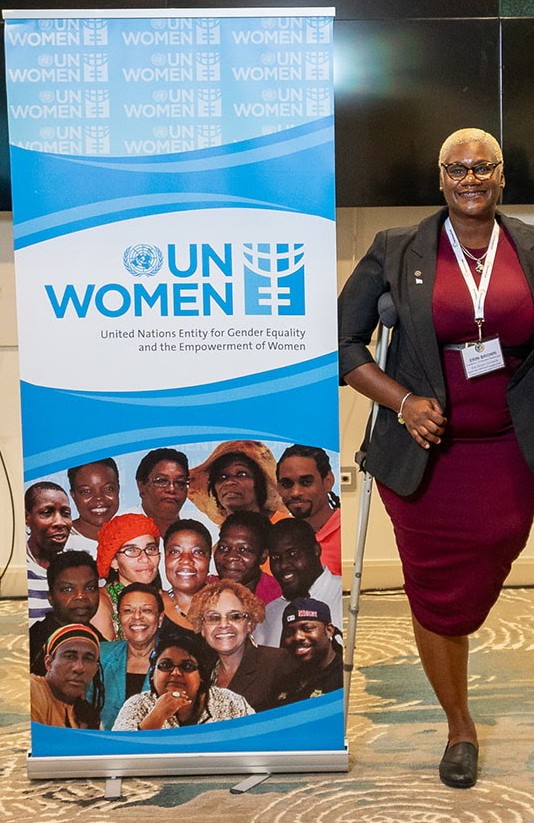

Image Credits
Royal Caribbean International , Sideline Enternationment Bahamas, Diversability, Blair Medows, Rise Bahamas, Bahamas Information Systems


